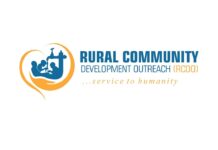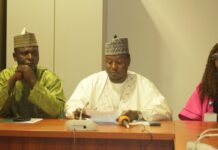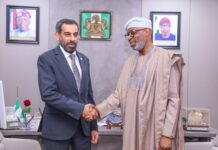On account of the UN General Assembly resolution of July 2021, proclaiming 18 June as the International Day for Countering Hate Speech, to be observed annually, the Human Rights Commission (NHRC) and the United Nations system in Nigeria, have commemorated the first ever International Day for Countering Hate Speech; and established a Hate Speech Observatory for Nigeria.
At a symposium held at the NHRC headquarters Abuja, the UN Resident and Humanitarian Coordinator, Matthias Schmale, represented by the Human Rights Advisor, UN Nigeria, Ms Adwoa Kuffor-Owusu, emphasised that if left unchecked, hate speech could harm peace and development, lay the ground for conflicts and tensions, undermine social cohesion, and contribute to wide scale human rights violations and atrocity crimes.
He warned that the world must not trample on freedom of speech and expression, “but when speech is weaponized to violate the rights of others, it must not be met with deafening silence. Silence implies apathy and even acceptance. We must be vigilant when we notice a rise in hate speech around us.”
On what the UN is doing about hate speech in Nigeria, Schmale disclosed that “We are working with multiple stakeholders to promote tolerance.
UNESCO is leading the way through its efforts to promote Media and Information Literacy (MIL). We are also currently developing a UN wide Hate Speech Strategy. We count on your support in ensuring the strategy will be translated into effective action.”
Welcoming the audience, the Executive Secretary of NHRC, Chief Tony Ojukwu (SAN) observed that the run up to general elections in Nigeria was ususally characterised by the blatant use of provocative, strong, and derogatory hate speeches by political actors and persons who are inclined to their political interests.
“These speeches have raised strong feelings of resentments typified by religious and ethnic/tribal negative labelling among the people.”
He noted, “The frequent use of hate speech in Nigeria has devastating effect on sustainable peace, national cohesion, dignity of human person, peace and development in our country.”
Other speakers included Executive Director of CLEEN Foundation, Ms Ruth Olofin; Special Assistant to the NHRC Executive Secretary, Barrister Benedict Agu; Representative of YIAGA, Ibrahm Faruk. The speakers were of the opinion that the State has an obligation to protect human rights and prevent hate speech.
The State according to them, must be duty bearers in ensuring that hate speech is not in ascendancy. The speakers also stressed on the interface between hate speech and human rights where the right to free speech can be restricted when it is used as an advocacy for the incitement of violence or genocide.
They also posited that a right to free speech should be within the law and must not be against public order or decency noting that for the good of soceity, the right to free speech can be taken away. They further stated that addressing hate speech does not mean limiting or prohibiting freedom of speech but rather it means keeping hate speech from dominating public space or discuss.
Some of the solutions advocated by the speakers to curtail hate speech include; creating a strong coalition and network with critical stakeholders like the media, religious and faith-based institutions, the traditional institutions and the security agencies. Another is constructive engagements with State actors.
The International Day of Countering Hate Speech is an initiative that builds on the UN Strategy and Plan of Action on Hate Speech launched on 18 June 2019. This first UN system-wide initiative designed to tackle hate speech provides an essential framework for how the Organization can support and complement states’ efforts.
The strategy emphasises the need to counter hate holistically and with full respect for freedom of opinion and expression, while working in collaboration with relevant stakeholders, including civil society organisations, media outlets, tech companies and social media platforms.













































